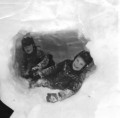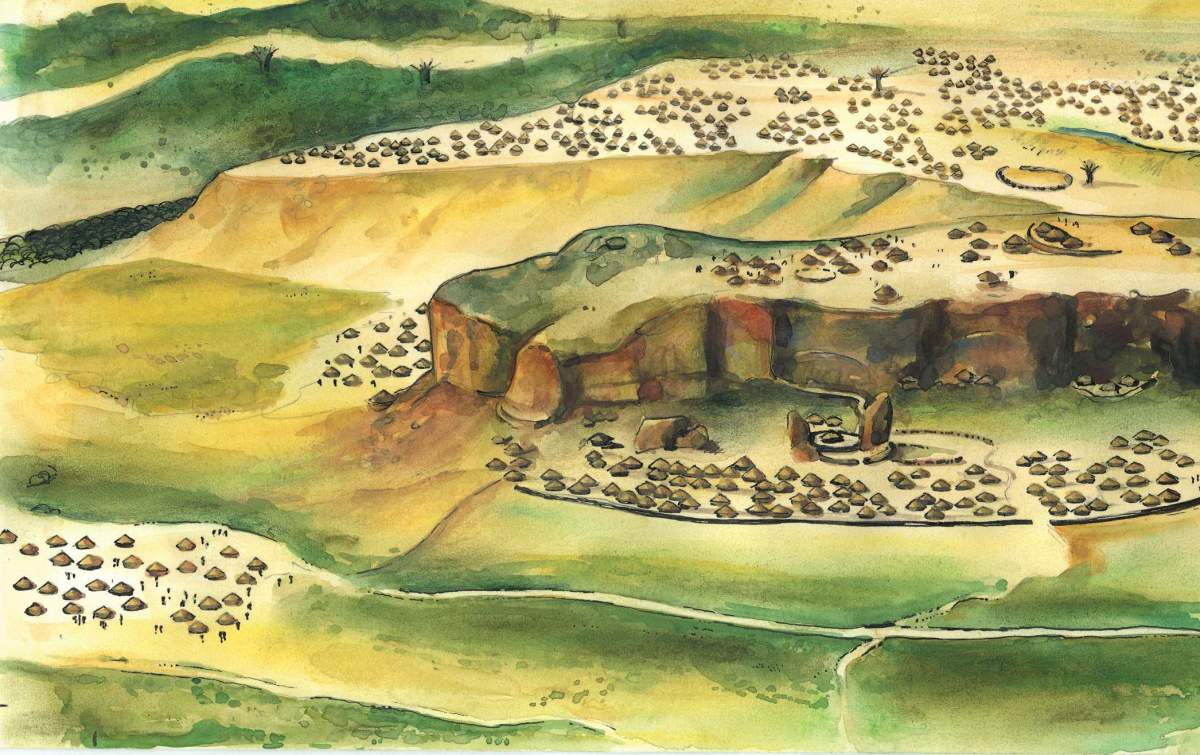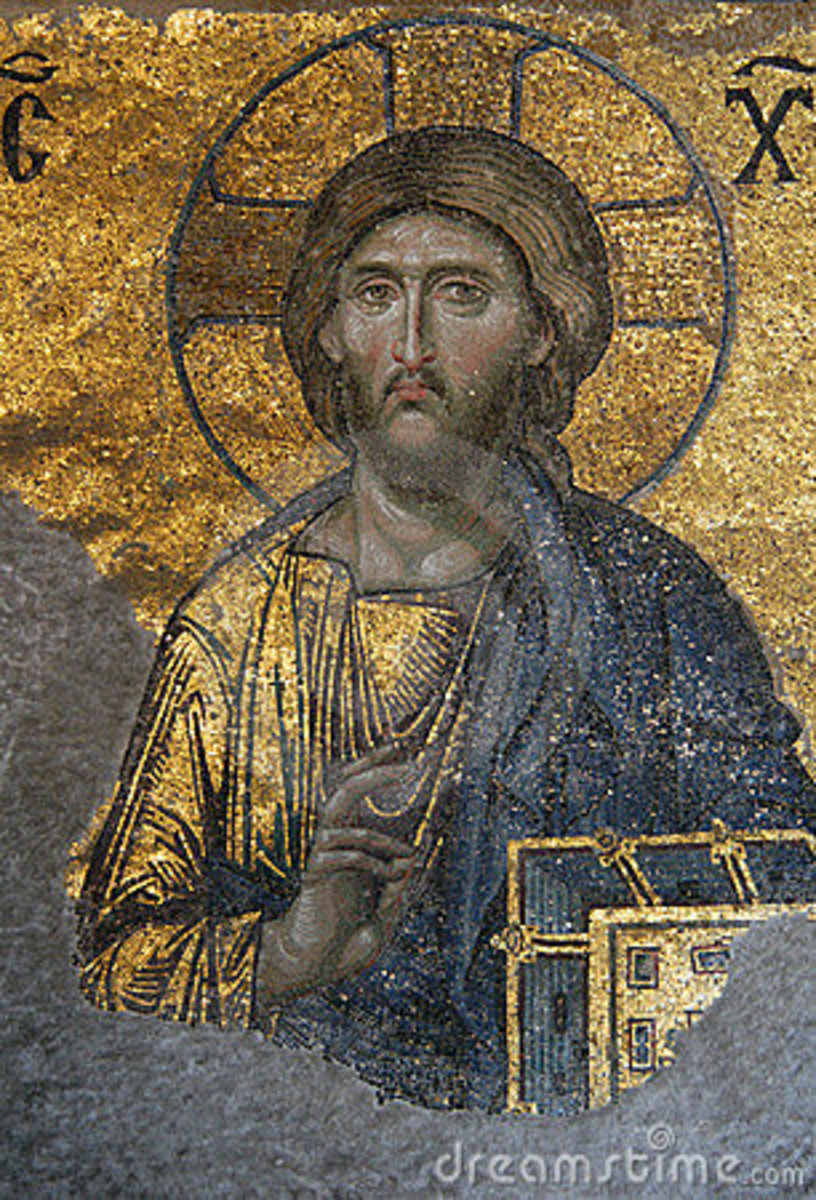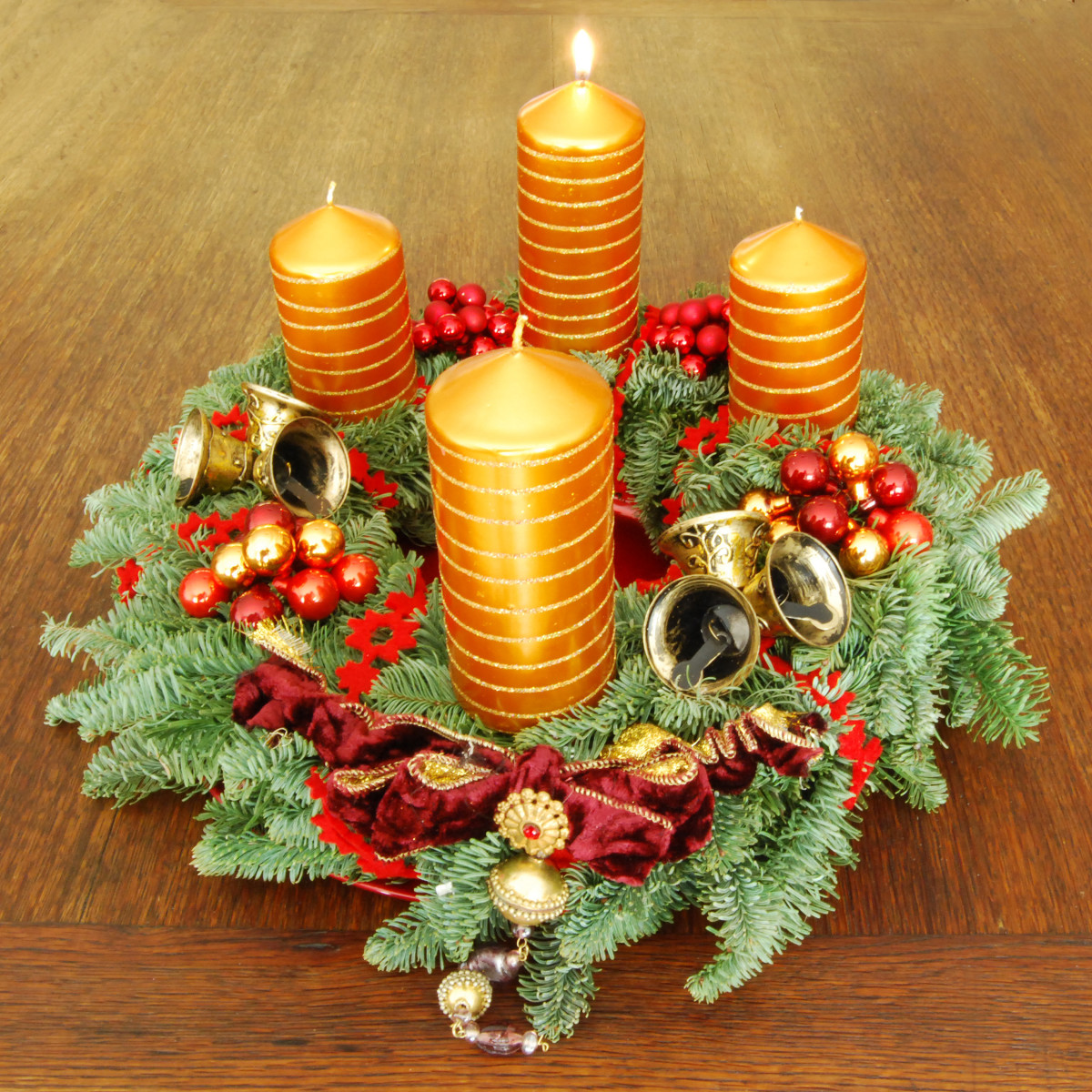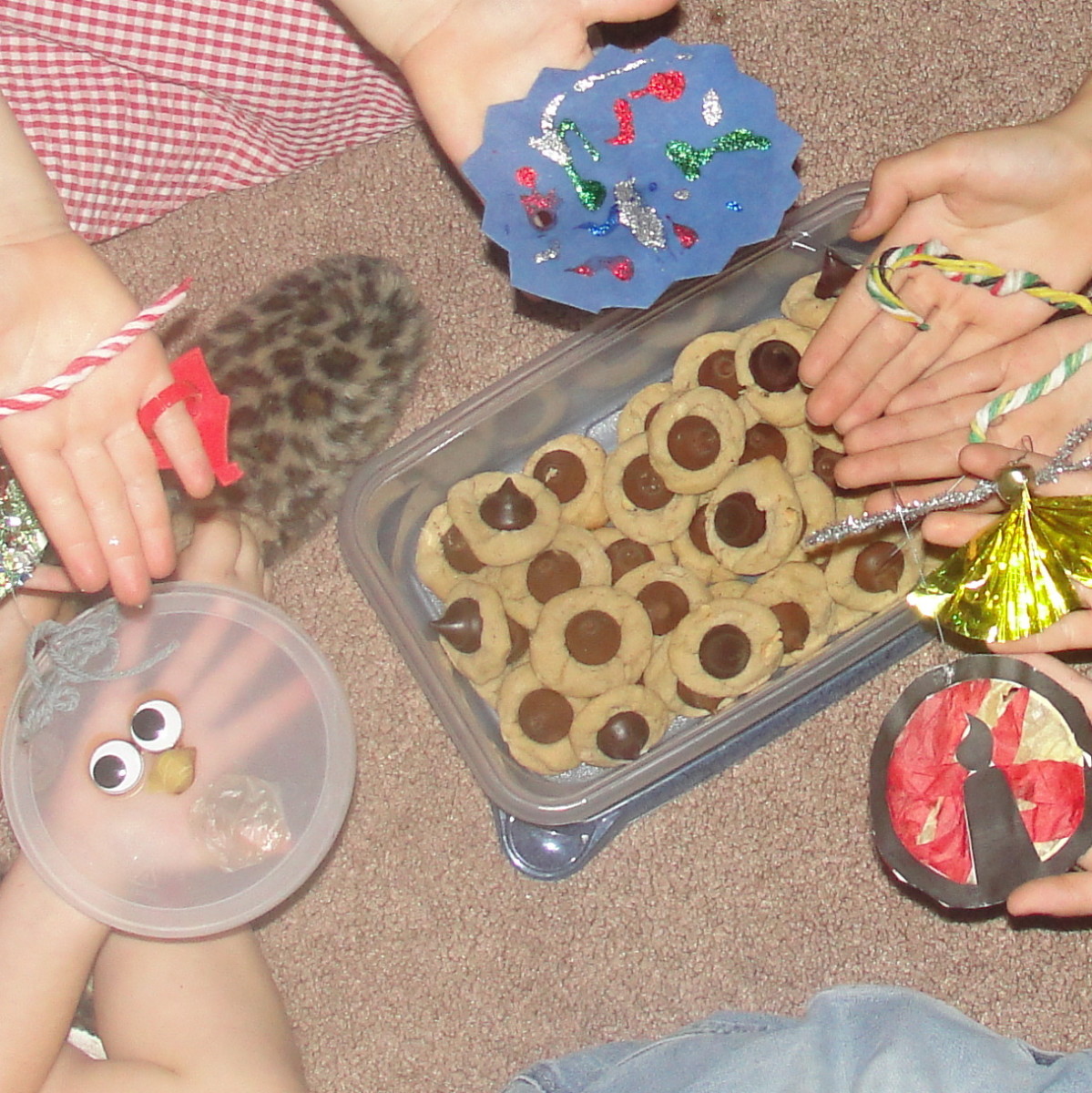African Christmas Family Traditions

"African Christianity is not just an exotic, curious phenomenon in an obscure part of the world, but that African Christianity might be the shape of things to come."
Lamin Sanneh (D. Willis James Professor of Missions and World Christianity and Professor of History at Yale Divinity School)
It is believed that christianity reached the African surface in the middle of the 1st century AD. Christianity in Africa is not merely the product of European missionary work; there is evidence that the first christian community was founded prior to the European influence. There were 9 million christians in Africa in 1900. The number raised to 380 million in 2000, and it is estimated that by 2025 christian population in Africa will increase up to 633 million.
Different countries in Africa celebrate Christmas in different ways. Some Christmas traditions ‘’imported’’ from Europe may be combined with the African pagan religious elements. For example, the Mmo African dance (masquearade or spirit representing the spirit of ancestors) is part of Christmas celebrations although it’s not actually a christian ritual. Ghana is the second biggest cocoa producer in the world and December is the month of the cocoa harvest (cocoa beans are the basis for chocolate). At Christmas time, everybody comes back to their villages as the local kings celebrate their achievements with masquerades. Churches and homes are decorated in the first week of Advent, church service is held on the Christmas morning, and children put up a nativity play or another scene from the life of Jesus Christ.
Spirituality is of great significance for African society and it is shown in the way people live and celebrate life in general. Rich or poor, African people celebrate and enjoy the moment. The African Christmas spirit more or less reflects the world’s Christmas tradition in which family and friends come together to spend time together, enjoy eating and drinking (if possible), and most important, to rejoice in the reality of having each other. In some parts of Africa, groups of young children dressed in skirts made of leaves go door to door to perform dances and Christmas songs using home made instruments. They may recieve a small gift of money in return. The people of Congo walk around in the village in groups of carolers singing Christmas carols and people in Liberia are woken up on Christmas morning to religious songs or carols. They use an oil palm tree as a Christmas tree and decorate it with bells.
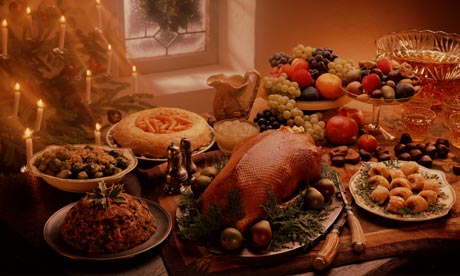
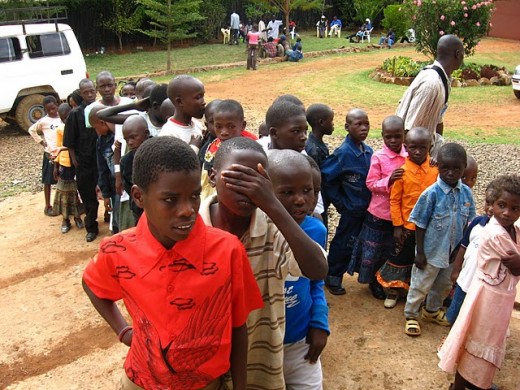
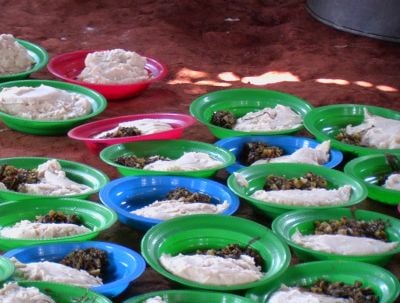
African Christmas foods
Goat, beef, chicken, bread, jam, tea, rice, sukuma wiki, chapattis, ugali, fufu, okra soup
In East Africa, Christmas feasts are with roasted goats. In Kenya, Uganda and Rwanda, for example, the goat meat is eaten hot from the charcoal grill and as a rule, in just one sitting. The Kikuyu and Masai tribes have a rule that certain parts of goat are for boys and certain for girls. Fufu is a thick paste usually made by boiling starchy root vegetables in water and pounding with a mortar or pestle. It is eaten in Ghana along with Lady's Finger soup or okra soup. In Liberia, people enjoy eating rice, beef and biscuits. People of Zimbabwe eat lots of bread, jam and tea along with their goat meat.
Families with less privilege eat chicken with chapattis, ugali, sukuma wiki and rice.
Unfortunately, the whole world knows there are many Africans who are not so lucky to eat the above mentioned Christmas foods. There are lots of children in orphanages depending on donations from other people. Christmas food is by many seen as a Christmas present.
A nice Christmas family tradition in the developed world would be to remeber those who starve, who are cold and alone, and share a pray for them. Parents should tell the true story of Christmas in Africa to their children to help them appreciate what they have and to motivate them to think of those in need. Man doesn’t have to go to Africa to find people in need, they may be very close by, even in our own neighbourhood.
Christmas presents in Africa
Christmas presents in Africa are something quite opposite of the presents bought and distributed around the developed world. If gifts are exchanged in poorer communities, they are cloth, soap, sweets, pencils, candles and school books. The most common Christmas present is a ‘’new’’ set of clothes, and sometimes shoes, to be worn to the church service. Of course, the clothes are mostly imported worn clothing from the secondhand market.
Very touching, in most parts of Africa, people collect birthday presents for Jesus Christ (after all, it is His birthday) and take them to the church service. They don’t buy them, they don’t visit shops, but they collect branches, stones, leafs or stuff like that to bring their presents to the born Jesus Christ. The most important part of their church service is the love offering as gift in honor of Jesus. Everyone enthusiastically goes forward to lay down their gift near the Communion table.
A nice Christmas family tradition in the developed world would be to motivate our children to choose one toy among their many toys to be given away as a present to children who haven’t got any. If something like that would be done in the whole neighbourhood or on a community level, toys could be sent far away to Africa, or closer, to an institution in our own country. Each year, someone else from the neighbourhood could host a small party or gathering for collecting the toys. School or nursery teachers could also start this tradition and make along a short thematic play with children.
It is in giving one receives.
If you liked this hub, please vote it up and share with your family and friends.
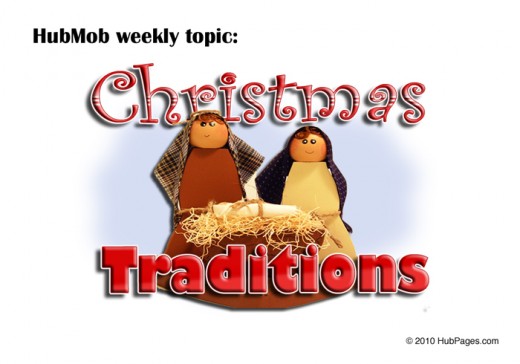
You may also want to read:
- How to Claim Tax Deductions on Charity Contributions?
If you're a donor you know all the benefits of being one (first of all, a good inner feeling because of helping somebody who really needs it) but if you're not a donor and you're distrustful about donations learn how giving to charity...

